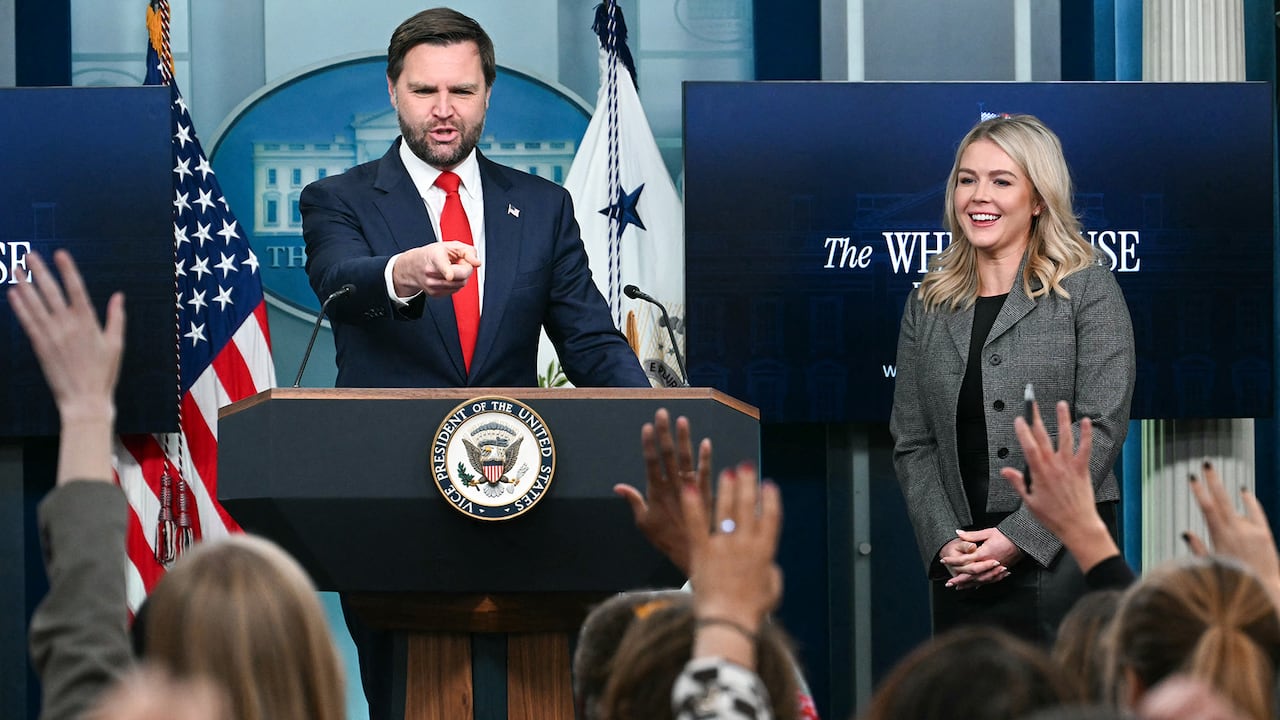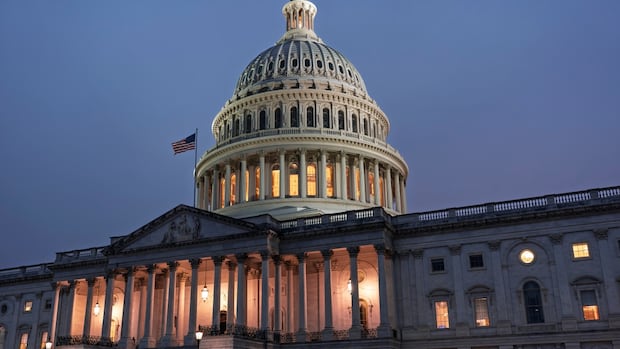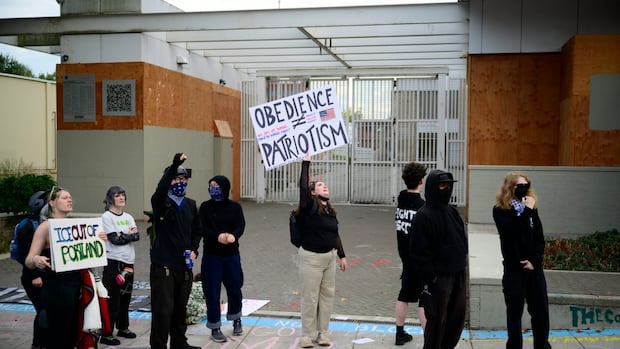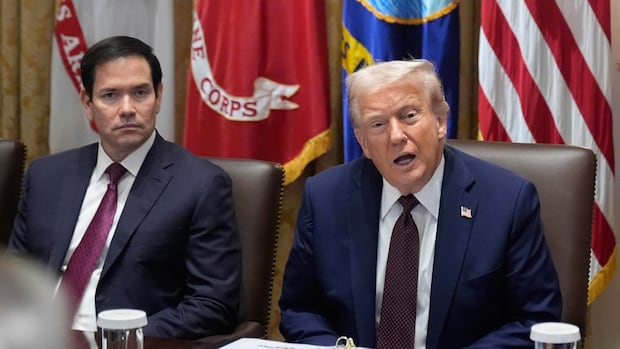Plunged into a government shutdown, the U.S. is confronting a fresh cycle of uncertainty after President Donald Trump and Congress failed to strike an agreement to keep government programs and services running by Wednesday's midnight deadline.
Senate Democrats voted down a Republican bill to keep funding the government late on Tuesday, triggering a U.S. shutdown for the first time in nearly seven years.
The Senate rejected the legislation as Democrats made good on their threat to close the government if Trump and Republicans didn't accede to their health-care demands.
The 55-45 vote on a bill to extend federal funding for seven weeks fell short of the 60 needed to end a filibuster and pass the legislation.
Senate Democratic Leader Chuck Schumer said Republicans are trying to "bully" Democrats by refusing to negotiate on an extension of expanded Affordable Care Act tax credits that expire at the end of the year.
"We hope they sit down with us and talk," Schumer said before the deadline lapsed.
 Senate Minority Leader Chuck Schumer speaks to reporters ahead of the government shutdown after his party voted against the Republican budget bill. (Jacquelyn Martin/The Associated Press)
Senate Minority Leader Chuck Schumer speaks to reporters ahead of the government shutdown after his party voted against the Republican budget bill. (Jacquelyn Martin/The Associated Press)"Otherwise, it's the Republicans will be driving us straight toward a shutdown tonight at midnight. The American people will blame them for bringing the federal government to a halt."
The failure of Congress to keep the government open means that hundreds of thousands of federal workers could be furloughed or laid off.
After the vote, the White House's Office of Management and Budget issued a memo saying "affected agencies should now execute their plans for an orderly shutdown."
Threatening retribution to Democrats, Trump said Tuesday that a shutdown could include "cutting vast numbers of people out, cutting things that they like, cutting programs that they like."
Trump and his fellow Republicans said they won't entertain any changes to the legislation, arguing that it's a stripped-down "clean" bill that should be noncontroversial.
Senate Majority Republican Leader John Thune said "we can reopen it tomorrow," if enough Democrats break party lines.
 Senate Majority Leader John Thune speaks to the media, with members of Republican leadership, before the government shutdown. (Jacquelyn Martin/The Associated Press)First shutdown since Trump's first term
Senate Majority Leader John Thune speaks to the media, with members of Republican leadership, before the government shutdown. (Jacquelyn Martin/The Associated Press)First shutdown since Trump's first termThe last shutdown was in Trump's first term, from December 2018 to January 2019, when he demanded that Congress give him money for his U.S.-Mexico border wall.
Trump retreated after 35 days — the longest shutdown ever — amid intensifying airport delays and missed paydays for federal workers.
While partisan stalemates over government spending are a frequent occurrence in Washington, the current impasse comes as Democrats see a rare opportunity to use their leverage to achieve policy goals and as their base voters are spoiling for a fight with Trump.
Republicans, who hold a 53-47 majority in the Senate, needed at least eight votes from Democrats after Republican Sen. Rand Paul of Kentucky opposed the bill.
Democratic Sens. John Fetterman of Pennsylvania and Catherine Cortez Masto of Nevada and Independent Sen. Angus King of Maine voted with Republicans to keep the government open — giving Republicans hope that there might be five more who will eventually come around and help end a shutdown.
 A sign saying 'worst government ever' is seen by the Capitol on Tuesday during a rally with fired federal workers before the government shutdown began at midnight. (Jacquelyn Martin/The Associated Press)
A sign saying 'worst government ever' is seen by the Capitol on Tuesday during a rally with fired federal workers before the government shutdown began at midnight. (Jacquelyn Martin/The Associated Press)After the vote, King warned against "permanent damage" as Trump and his administration have threatened mass layoffs.
"Instead of fighting Trump we're actually empowering him, which is what finally drove my decision," King said.
Thune predicted Democratic support for the Republican bill will increase "when they realize that this is playing a losing hand."
Federal employees face work stoppage, job lossesThe stakes are huge for federal workers across the country as the White House told agencies last week they should consider "a reduction in force" for many federal programs if the government shuts down.
That means that workers who are not deemed essential could be fired instead of just furloughed.
Either way, most would not get paid.
The nonpartisan Congressional Budget Office estimated in a letter to Iowa Sen. Joni Ernst on Tuesday that around 750,000 federal workers could be furloughed each day once a shutdown begins.
Federal agencies were already preparing.
On the home page of the Department of Housing and Urban Development, a large pop-up ad reads, "The Radical Left are going to shut down the government and inflict massive pain on the American people."
Affordable health care in the spotlightDemocrats wanted to negotiate an extension of the health subsidies immediately as people are beginning to receive notices of premium increases for the next year.
Millions of people who purchase health insurance through the Affordable Care Act could face higher costs as expanded subsidies first put in place during the COVID-19 pandemic expire.
Democrats have also demanded that Republicans reverse the Medicaid cuts that were enacted as a part of Trump's "big, beautiful bill" this summer and for the White House to promise it will not move to rescind spending passed by Congress.
WATCH | Breaking down Trump's 'big, beautiful bill': See what's inside Donald Trump's latest bill, which the U.S. House passed into law before a July 4 deadline. With Democrats unified in opposition, the bill will become a defining measure of Trump's return to the White House, aided by Republican control of Congress."We are not going to support a partisan Republican spending bill that continues to gut the health care of everyday Americans," House Democratic Leader Hakeem Jeffries said.
Thune pressed Democrats to vote for the funding bill and take up the debate on tax credits later.
Some Republicans are open to extending the tax credits, but many are strongly opposed to it. In a rare, pointed back-and-forth with Schumer on the Senate floor Tuesday morning, Thune said Republicans "are happy to fix the ACA issue" and have offered to negotiate with Democrats — if they would have voted to keep the government open until Nov. 21.
Democrats push back against Trump 'appeasement'Democrats are in an uncomfortable position for a party that has long denounced shutdowns as pointless and destructive, and it's unclear how or when the shutdown will end.
But party activists and lawmakers have argued that Democrats need to do something to stand up to Trump.
"The level of appeasement that Trump demands never ends," said Sen. Peter Welch, a Democrat from Vermont.
"We've seen that with universities, with law firms, with prosecutors. So is there a point where you just have to stand up to him? I think there is."
Some groups called for Schumer's resignation in March after he and nine other Democrats voted to break a filibuster and allow a Republican-led funding bill to advance to a final vote.
Schumer said then that he voted to keep the government open because a shutdown would have made things worse as Trump's administration was slashing government jobs.
He says things have now changed, including the passage this summer of the massive Republican tax cut bill that reduced Medicaid.











